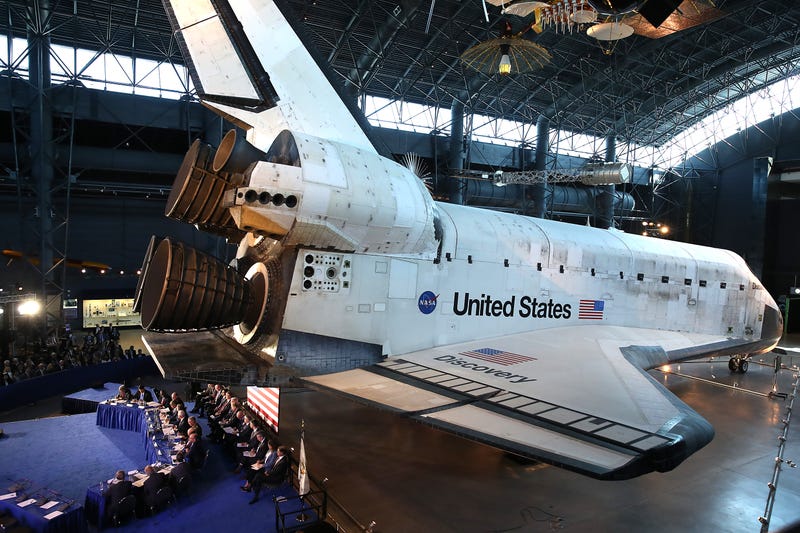
A new bill, the Bring the Space Shuttle Home Act, aims to relocate the retired Space Shuttle Discovery from the Smithsonian Institution’s Steven F. Udvar-Hazy Center in Virginia to NASA’s Johnson Space Center in Houston, Texas.
The Johnson Space Center in Houston features Space Shuttle Independence, a full-scale, high-fidelity replica mounted on top of the historic NASA 905 Shuttle Carrier Aircraft. This exhibit, known as Independence Plaza, allows visitors to explore the shuttle's interior and learn about the shuttle era2.
The Bring the Space Shuttle Home Act aims to bring a real, flown shuttle — Discovery — to Houston, arguing that the city deserves one due to its historic role in NASA's space missions.
Legislation Overview
Introduced by Senators John Cornyn and Ted Cruz, the bill argues that Houston, home to Mission Control and a key hub for NASA’s spaceflight operations, deserves to house one of the retired shuttles. The legislation mandates that NASA and the Smithsonian develop a transfer plan within 90 days, including a timeline and cost estimate, with the physical relocation required within 18 months.
Historical Context & Controversy
Houston played a central role in the space shuttle program, yet was denied a retired shuttle in 2010 when the Obama administration allocated them to other locations, including New York City, which lacks a NASA center. Lawmakers argue that this decision was politically motivated and that Houston should rightfully receive Discovery.
Public Exhibition & STEM Education
Once transferred, Discovery would be placed on public display within five miles of Johnson Space Center to promote science, technology, engineering, and mathematics (STEM) education. Eventually, ownership would shift to a nonprofit organization, ensuring long-term preservation and accessibility.
Challenges & Concerns
Critics highlight the logistical and financial hurdles of moving such a large artifact, as well as concerns that relocating Discovery from the Smithsonian—visited by millions annually—could limit its accessibility to a broader audience.
With strong backing from Texas lawmakers, the bill is expected to spark debate over regional priorities, historical recognition, and the future of space education.
LISTEN on the Audacy App
Tell your Smart Speaker to "PLAY 1080 KRLD"
Sign Up to receive our KRLD Insider Newsletter for more news
Follow us on Facebook | Twitter | Instagram | YouTube
